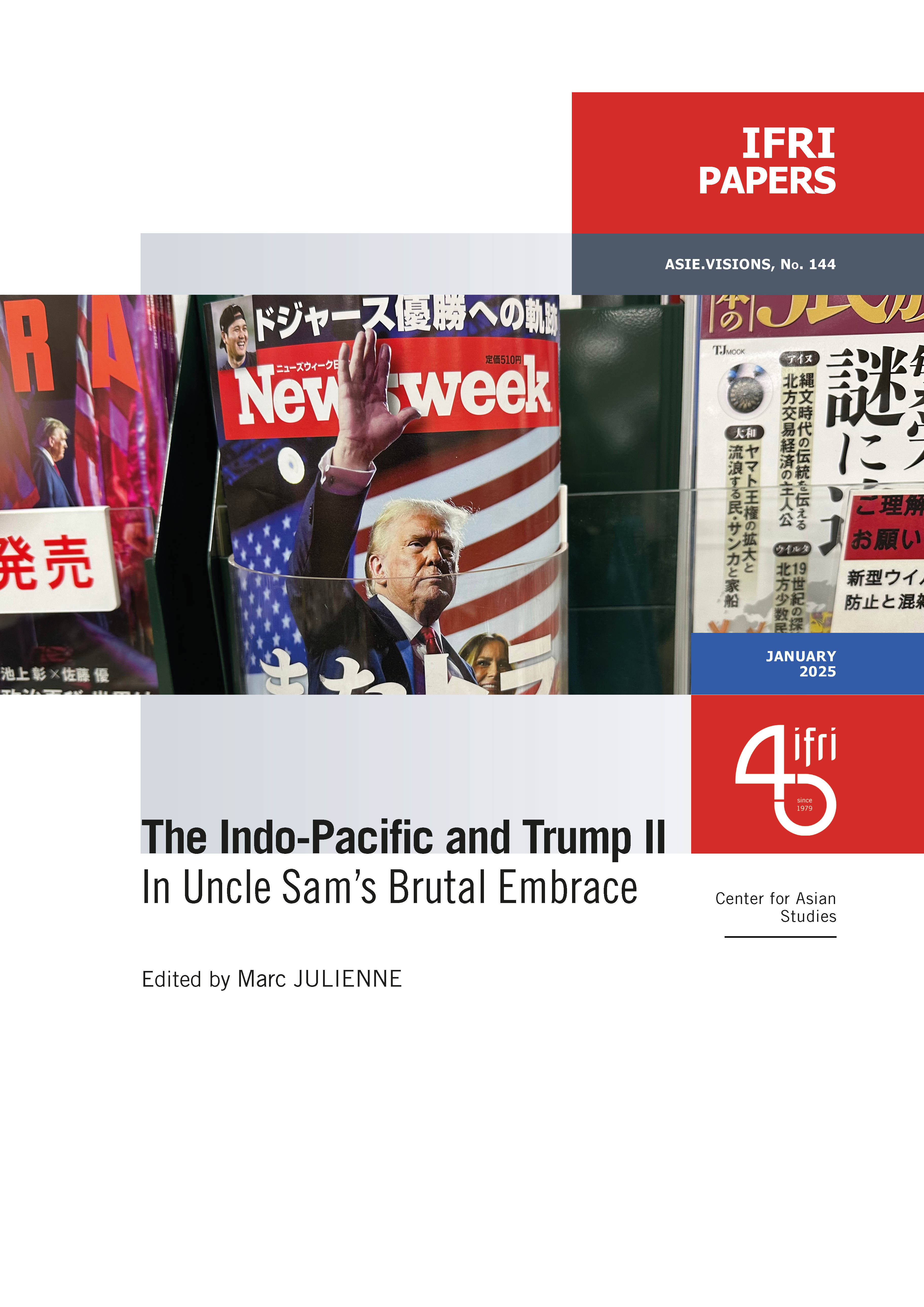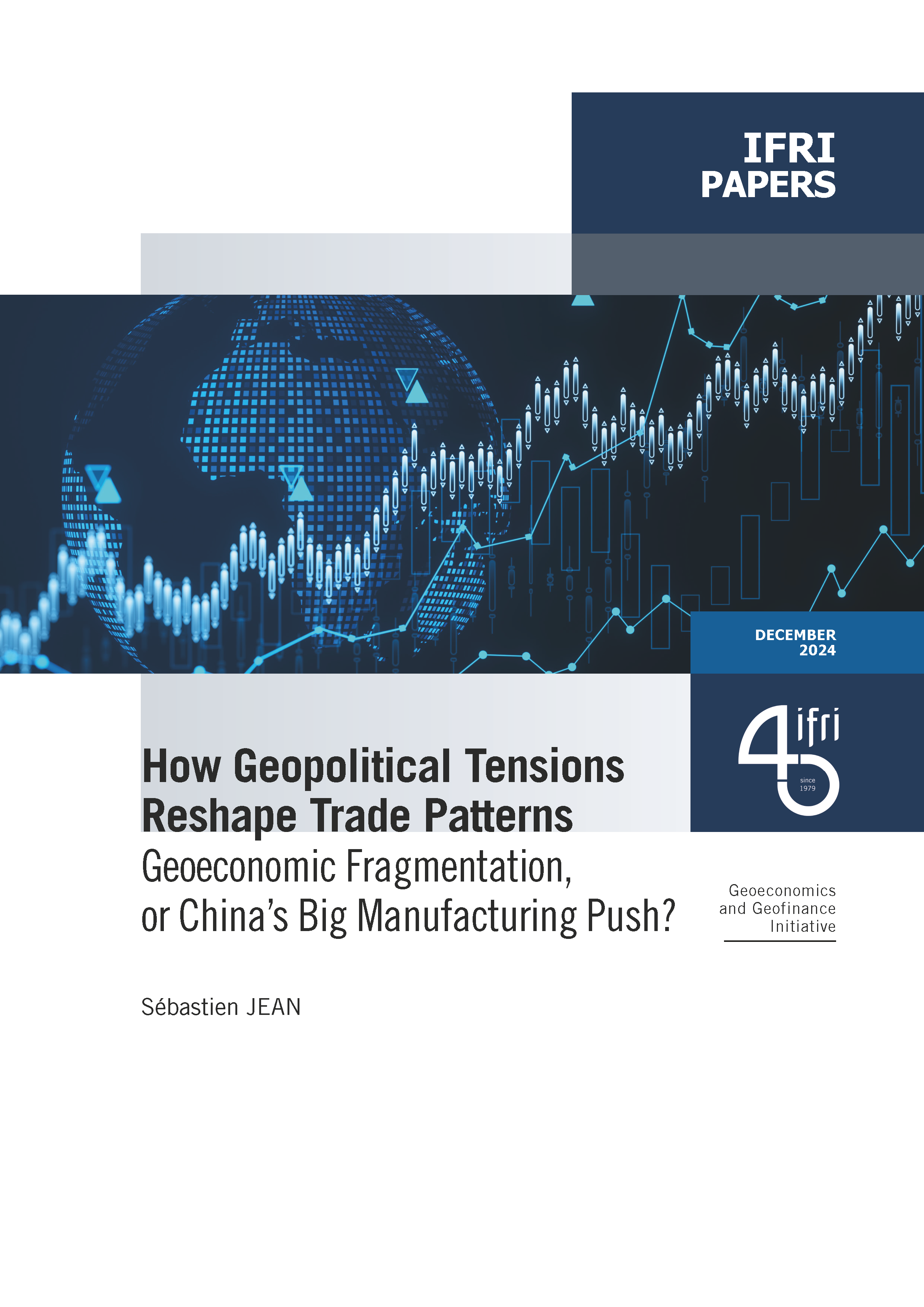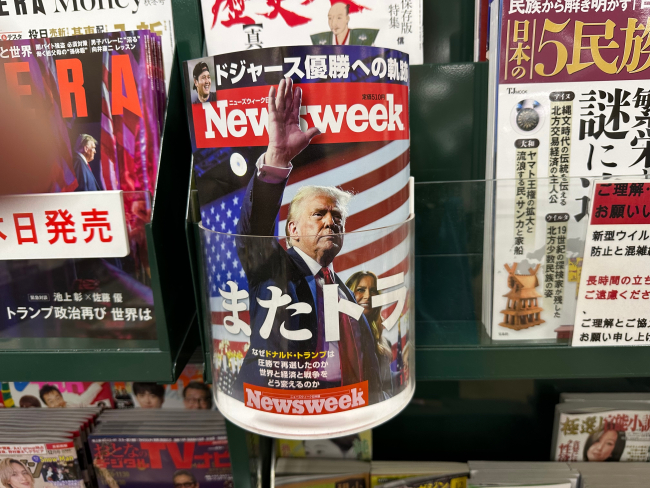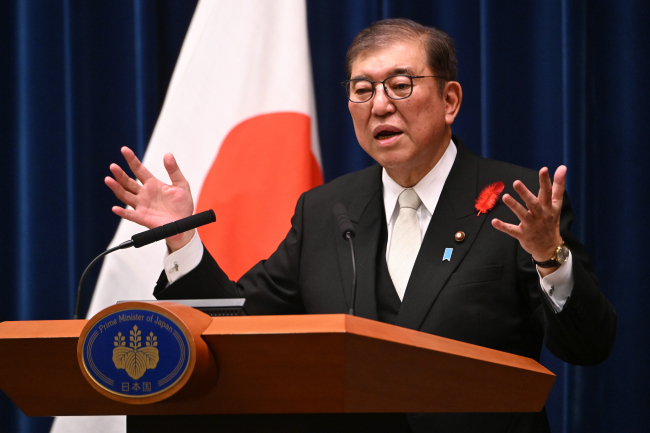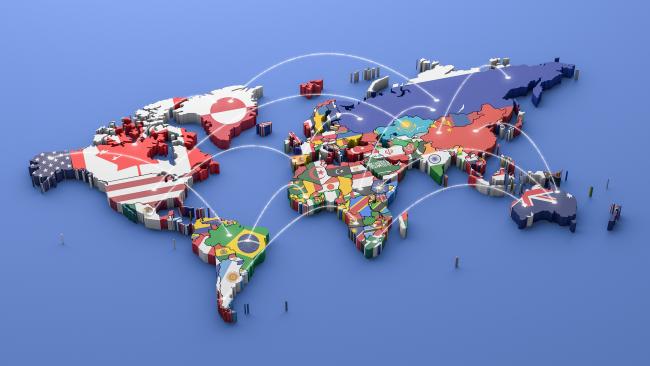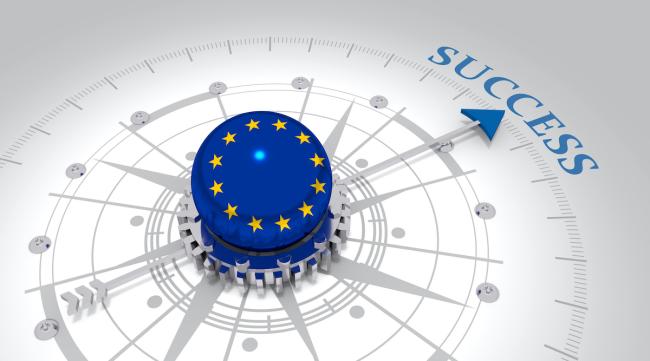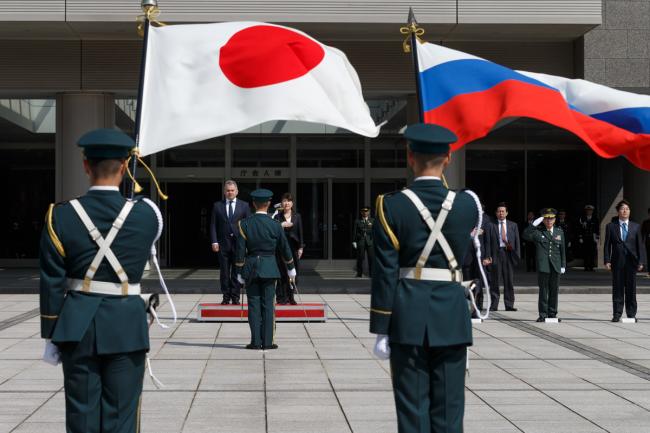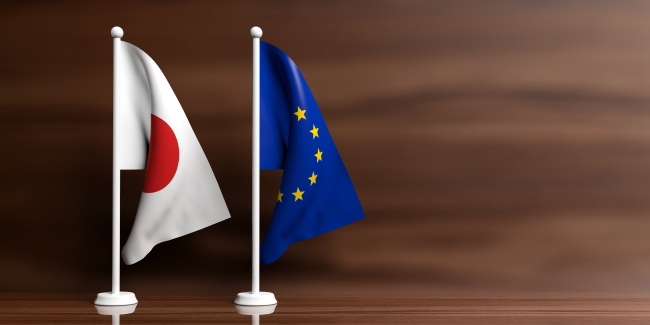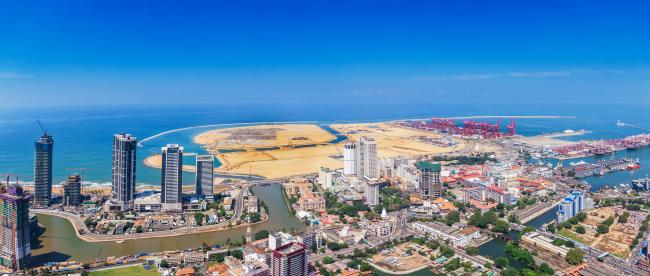

Japan’s New Leadership: Heralding a New Direction?
Japan’s ruling Liberal Democratic Party (LDP) chose its next leader on September 27, after in mid-August incumbent Prime Minister Kishida announced that he would not run for a second term as LDP President.
10th Pacific Islands Leaders Meeting: 5 things to know
Pacific leaders will gather in Tokyo for the 10th Pacific Islands Leaders Meeting (PALM10) from Tuesday to Thursday.


Japan PM Kishida’s Africa tour lays groundwork for G7 summit, as China and Russia concerns loom large
While the impact of Kishida’s tour is ‘marginal, it can still send ‘a message of solidarity’ that it intends to take the continent’s concerns seriously. Getting the African countries to take active measures against Russia will be difficult if they are not offered strong incentives in exchange, one analyst notes.
Does Macron's stance on Taiwan weaken G7 deterrence against China?
One of Prime Minister Fumio Kishida’s top goals for next month’s Group of Seven summit in Hiroshima is to create a united front on issues like China and Ukraine. But finding a unified approach to dealing with Beijing’s assertiveness might have just become harder.


Japan’s Africa aid rivals China in terms of ‘quality over quantity’: analysts
Japan has been investing in the continent for longer than China and applies international standards to its infrastructure financing, analysts said. Its pockets may not be as deep, but its support of good governance and democratic principles makes it a tempting development partner for African states.


Japan resumes its wooing of Africa, a counter to China’s efforts
Japan, which began developmental programmes in the 1990s, has been eclipsed in recent years by China, now Africa’s leading trade partner.Pledge to invest US$30 billion on the continent includes a focus on training Africans to run their economy.


After support for Ukraine, Kishida aims for NATO unity on China
When Prime Minister Fumio Kishida becomes the first Japanese leader to attend a NATO leaders summit on Wednesday, he’ll be looking to stress the need for unity in preventing China from taking the “wrong lessons” from the Ukraine war as the bloc looks to expand its footprint in the Indo-Pacific.
Japan's upgraded economic security strategy
An interview with Kazuto SUZUKI, Professor, Graduate School of Public Policy, University of Tokyo.


As Europe's interest in the Indo-Pacific grows, is Japan ready to lead the way?
Alarmed by China’s rising power, its frictions with neighboring countries in the East and South China seas, allegations of human rights abuses in the Xinjiang region and crackdowns in Hong Kong, European countries are seeking to step up their involvement in the Indo-Pacific region.
Rethinking Health Governance in the COVID era: Visions from Europe and Japan
The COVID-19 pandemics has highlighted the significance, as well as the deep crisis of the health governance system.
The Indo-Pacific and Trump II. In Uncle Sam’s brutal embrace
In this collective analysis, the research team of the Center for Asian Studies presents a synthetic and non-exhaustive assessment of the relations taking shape between the United States under the Trump II administration and some of the main players in the Indo-Pacific.
Japan: Deciphering Prime Minister Ishiba’s Strategic Vision. Toward an Asian version of NATO?
On Tuesday, October 1, Shigeru Ishiba was sworn in as Prime Minister of Japan. His proposal to revise the security alliance with the United States and create an Asian version of the North Atlantic Treaty Organization (NATO) attracted attention and sparked lively debate.
Japan’s Enhanced Security Engagement With the Pacific Islands
The expansion of security and defense cooperation stands as the most spectacular change in Japan’s contribution to the region in recent years.
Fumio Kishida's Visit to Paris. The France-Japan Relation Deserves Better
Chinese President Xi Jinping's state visit to France hit the headlines. President Macron rolled out the red carpet to welcome his guest, hoping to convince China to limit its support for Russia and respect fair trade rules.
The Technology Policies of Digital Middle Powers
Digital technology is an element of power in the international system as well as an area for competition among countries. The study provides a qualitative comparison of the technology policies of nine of the digital middle powers: Brazil, India, Israel, Japan, Kenya, Nigeria, Russia, South Korea, and the United Kingdom. It seeks to reflect the diversity of national technology policies, as well as to identify those countries’ convergences and divergences with Europe, the United States and China.
Japan steps up its Africa engagement
Laying the foundation for the Eighth Tokyo International Conference on African Development (TICAD), Japanese Foreign Minister Yoshimasa Hayashi held talks on 28 March 2022 with ministers from 50 African nations. Hayashi expressed concerns that the COVID-19 pandemic and the war in Ukraine had increased the economic and social vulnerabilities of African countries — deepening their dependence on China. He subsequently committed to increase Japan’s cooperation with Africa.
Rapprochement in Times of Crisis: War in Ukraine and the EU-Japan Partnership
The war in Ukraine has shaken the foundations of European security and of the global rules-based order. In many ways, Russia’s aggression has been a wake-up call for the EU, adding a sense of urgency to its ongoing transformation to becoming a stronger geopolitical actor, materialised by the recent publication of its Strategic Compass – its first-ever white paper for security and defence.
Japan-Russia: The end of delusions
The war in Ukraine has led to a major rift between Japan and Russia.
EU-Japan Relations: Moving Forward
EU-Japan relations have undergone a major uplift over the past 5 years. Bound by the Economic and Strategic Partnership Agreements, as well as the Partnership on Sustainable Connectivity, the two once-distant players have been stepping up efforts to address the many shared security concerns in the Indo-Pacific and beyond. Ahead of the upcoming EU-Japan summit, this Policy Brief takes stock of the current state of play and offers some food for thought on how to move forward with the bilateral relationship.
Japan’s Infrastructure Investment in the Indian Ocean: Checking China, Securing the Sea Lanes
In the 2010s, Japan gradually increased economic connections with the Indian Ocean region (IOR) through trade, foreign direct investment, and official development assistance (ODA).


Japan’s New Leadership: Heralding a New Direction?
Japan’s ruling Liberal Democratic Party (LDP) chose its next leader on September 27, after in mid-August incumbent Prime Minister Kishida announced that he would not run for a second term as LDP President.
10th Pacific Islands Leaders Meeting: 5 things to know
Pacific leaders will gather in Tokyo for the 10th Pacific Islands Leaders Meeting (PALM10) from Tuesday to Thursday.


Japan resumes its wooing of Africa, a counter to China’s efforts
Japan, which began developmental programmes in the 1990s, has been eclipsed in recent years by China, now Africa’s leading trade partner.Pledge to invest US$30 billion on the continent includes a focus on training Africans to run their economy.


As Europe's interest in the Indo-Pacific grows, is Japan ready to lead the way?
Alarmed by China’s rising power, its frictions with neighboring countries in the East and South China seas, allegations of human rights abuses in the Xinjiang region and crackdowns in Hong Kong, European countries are seeking to step up their involvement in the Indo-Pacific region.
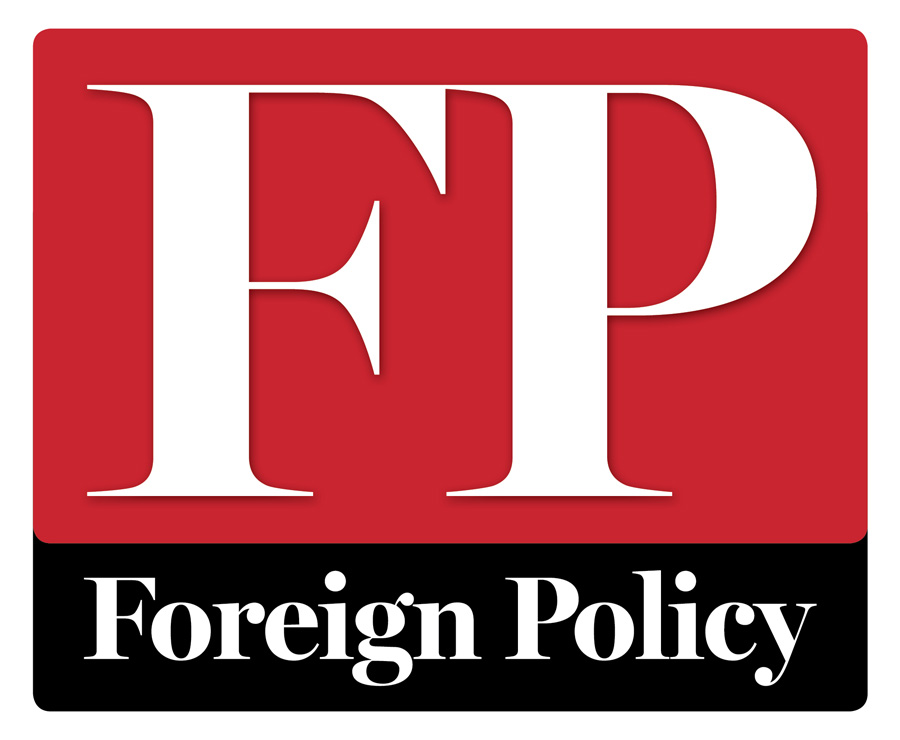

Abe dissolves Japan Parliament ahead of snap elections
On Thursday, Japanese Prime Minister Shinzo Abe dissolved Japan’s parliament, the starting pistol for the snap elections he called a year early to get over a “national crisis.”
Législatives au Japon: une victoire pour les "abenomics"
Lancées début 2013 pour tirer l’Archipel de la déflation, les « Abenomics » sont d’ambitieux programme de relance du premier ministre, Shinzo Abe.
Invité: l’économiste Claude Meyer spécialiste de la zone Asie.
Japan's upgraded economic security strategy
An interview with Kazuto SUZUKI, Professor, Graduate School of Public Policy, University of Tokyo.
What are the impact of the COVID-19 crisis on Japan's economic security?
In this interview, Shin Oya, Senior Consulting Fellow, Asia Pacific Initiative and Chief Representative for Strategic Research, JBIC looks at COVID-19's impact on economic security in Japan.
Cybersecurity and COVID-19: Responses from Japan
In this interview, Mihoko Matsubara, Chief Cybersecurity Strategist, NTT Corporation in Tokyo, examines Japan's cybersecurity responses during the COVID-19 pandemic.
Japan's cyber diplomacy: cooperation with the EU and challenges ahead
In this interview, Dai Mochinaga, senior researcher at Keio Research Institute looks at Japan's cyber diplomacy and challenges for global cybersecurity and data governance.
Cooperation Despite Frictions in Northeast Asia
Despite the political tensions that oppose Japan, China and South Korea, recent months have seen a certain rapprochement between Tokyo, Seoul and Beijing. The first trilateral summit in three years was held in November 2015.
Cooperation Despite Frictions in Northeast Asia
Cooperation Despite Frictions in Northeast Asia
Support independent French research
Ifri, a foundation recognized as being of public utility, relies largely on private donors – companies and individuals – to guarantee its sustainability and intellectual independence. Through their funding, donors help maintain the Institute's position among the world's leading think tanks. By benefiting from an internationally recognized network and expertise, donors refine their understanding of geopolitical risk and its consequences on global politics and the economy. In 2024, Ifri will support more than 70 French and foreign companies and organizations.



